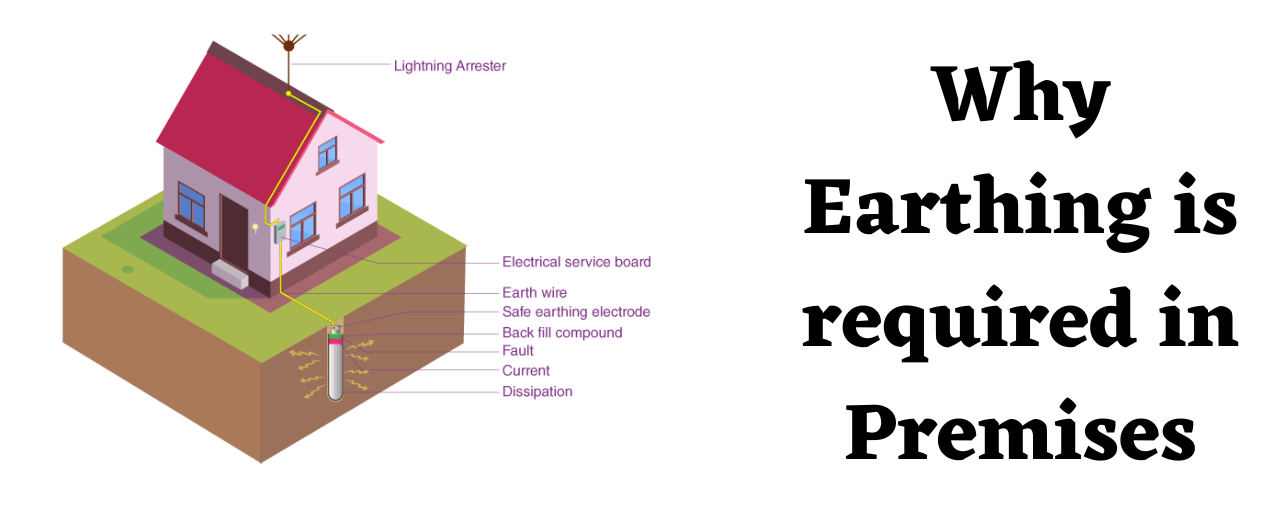Why Earthing is required in Premises
Why Earthing is Required in Premises
Earthing is an ancient practice that is now becoming more popular in modern times. Earthing, which refers to grounding, or being in contact with the earth, is a method of stimulating and maintaining the body's electrical potential, or electromagnetic field.

Electrical earthing, or grounding, is the process of connecting the metal parts of an electrical system to the earth. This is an important safety feature in electrical installations, as it helps to prevent electrical shocks and other hazards that can arise from faulty wiring or equipment.
Here are some of the reasons why earthing is required in premises:
Electrical safety: The primary reason for earthing is to ensure electrical safety. Electrical systems are designed to operate within a certain voltage range, but faults in the system can cause voltage spikes that can be dangerous or even deadly. By connecting the metal parts of the system to the earth, any excess voltage is safely dissipated, preventing electrical shocks and fires.
Protection of equipment: Electrical equipment can be damaged by voltage spikes and surges, which can also cause disruption to computer networks and other sensitive electronics. By grounding the electrical system, these voltage spikes are diverted away from the equipment, protecting it from damage.
Lightning protection: Lightning strikes can cause significant damage to electrical systems, and can even cause fires. Grounding the system provides a path for the lightning to safely discharge, reducing the risk of damage or injury.
Compliance with regulations: In many countries, electrical earthing is a legal requirement for certain types of premises and electrical installations. Failure to comply with these regulations can result in fines, legal action, and even imprisonment.
Personal safety: Grounding also helps to protect people who come into contact with electrical systems. If a fault occurs and someone touches a live wire or other metal part of the system, they can receive a shock that can be lethal. By grounding the system, any excess voltage is safely discharged to the earth, reducing the risk of injury.
In conclusion, electrical earthing is an important safety feature in any premises that has an electrical system. It protects people and equipment from electrical hazards, ensures compliance with regulations, and reduces the risk of damage from lightning strikes. If you have any concerns about the earthing of your premises, it's important to consult a qualified electrician who can assess your system and make any necessary recommendations.
